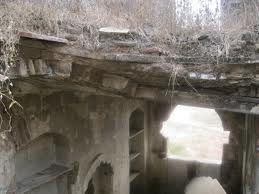


VANCOUVER, BC—In a report made public recently, Human Rights Watch (HRW) has pressured India to lay charges against the individuals responsible for the massacre of Sikhs in 1984.
The report detailed the killings in the village of Hondh-Chillar, where 32 Sikhs were killed on November 2, 1984. In March, 2011, the site of another forgotten killing of 17 people in nearby Pataudi, was discovered.
“The discovery of more Sikh massacre victims after nearly three decades shows the reluctance of successive Indian governments, despite numerous commissions of inquiry, to get to the truth and prosecute those responsible for the anti-Sikh violence,” said Meenakshi Ganguly, South Asia director at Human Rights Watch.
This isn’t the first time Human Rights Watch has exposed India’s horrific human rights record. Commenting on extrajudicial killings by police, HRW stated in a 1990 report that, “the frequency with which these killings were reported to take place and the consistency of the eyewitness testimony indicate that they are not aberrations but rather the product of a deliberate policy known to high-ranking security personnel and members of the civil administration in Punjab and New Delhi.”
Commenting on the recent recommendations, Canadian Sikh Coalition spokesperson, Moninder S. Bual, voiced a sentiment of “justice delayed is justice denied.”
“Though the recommendations made by HRW are welcomed, they are not a solution. Even if India’s defunct judiciary acts on the suggestion, it would be little more than a band-aid on a massive wound. In a recent decision, the courts have decided to begin prosecuting low-level police officers while the National Human Rights Commission has ordered the state to provide meagre compensation to some of the families whose members disappeared. Despite these empty gestures, the Indian administration reveals it’s insincerity when it refuses to prosecute high-level officers like Kanwarpal Gill or Julio Ribeiro while other human rights offenders like Sumedh Saini are promoted to positions like DGP.”
He went on to say, “by HRW’s own admission in past reports, such killings occur under the directions and with the complicity of the highest levels of the Indian establishment. The solution must therefore also be along the same lines. The actions of the Indian state have made it amply clear that the lives of Sikhs and Punjabis are expendable in India today. The only way the life and liberty of the people can be protected and prosper is if the people of Punjab are able to exercise their right to self-determination and govern themselves in a sovereign state.”




